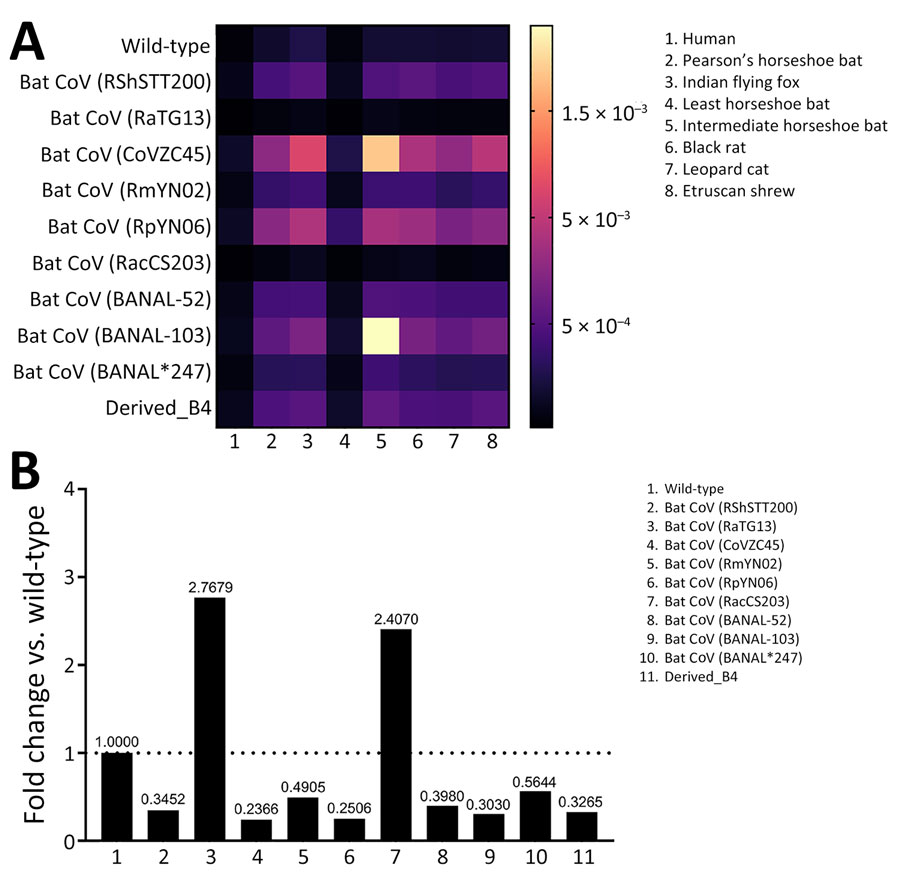Volume 31, Number 8—August 2025
Dispatch
Genomic Surveillance Detection of SARS-CoV-1–Like Viruses in Rhinolophidae Bats, Bandarban Region, Bangladesh
Figure 2

Figure 2. Binding efficiency and fold change of SARS-CoV-1–like virus viruses in Rhinolophidae bats, Bandarban Region, Bangladesh. A) Heatmap depicting binding efficiency of receptor binding domain (RBD) sequences from B4 and regional bridging hosts. The map shows that derived B4 RBD has low-to-moderate binding efficiency to angiotensin converting enzyme 2 (ACE2) sequences from regional bridging hosts. B) Fold change of coronavirus RBDs including derived B4 to human ACE2, relative to wild-type virus (horizontal dotted line). B4, samples from bat 4; CoV, coronavirus.
1These first authors contributed equally to this article.
Page created: June 17, 2025
Page updated: July 22, 2025
Page reviewed: July 22, 2025
The conclusions, findings, and opinions expressed by authors contributing to this journal do not necessarily reflect the official position of the U.S. Department of Health and Human Services, the Public Health Service, the Centers for Disease Control and Prevention, or the authors' affiliated institutions. Use of trade names is for identification only and does not imply endorsement by any of the groups named above.